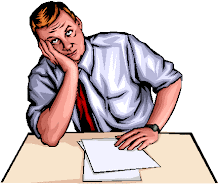The question has been often been asked before if art imitates life or life imitates art. Maybe just the first question is asked a lot, but some clever people have decided to ask the second. Either way, I'm not sure if I've had the same experience as those clever people, but I often find myself building a film around my everyday activities and movements. It's as if my surroundings become a set and only one dimension of it really exists. Placement and movement are planned, rehearsed and choreographed. Then something goes wrong, but nobody yells "cut". Rather, the scene continues and eventually works itself out with improvisation or spirals into further crappiness. Blogger's spell-check does not like the word "crappiness", by the way. It also insists on a hyphen in "spell-check".
Probably the most common duality between real life and a film is the soundtrack. There is such an automatic association between a time and place and the music present, it's hard not to think you're in a movie when a certain experience is accompanied by a certain piece of music, as if it were planned that way. Most common for me is the opening credits sequence. Unmistakably, this is going to happen when I'm first waking up in the morning, or driving a car in one of several scenarios.
The waking up "scene" usually consists of a pair of bare feet (mine, that is) hitting the floor from a below-bed camera angle. As soon as the feet (mine again) hit the floor, a guitar riff ushers in the opening credits. Right now the best song in mind for this is "Bastards of Young" by The Replacements. A second scenario would be something where a black screen is accompanied by an alarm clock playing something like Sonny and Cher (a la Groundhog Day). It feels like this could be any of our real lives on a real day-to-day basis, just not mine, as I wake up to a brutally annoying ring-tone thing on my cellphone.
While the waking up scene is easy to experience personally, the all-time "this could be in a movie" moment is driving in a particular place with particular music providing the soundtrack. It just has "that feel" to it, but there isn't just one way for this happen. It can occur with a completely appropriate connection or a seemingly contradictory one. An example could be a classical symphony playing behind a scene of gridlock traffic in the worst heat of summer. The significance lies in the contrast, while our senses are able to first differentiate, then combine, the two opposing forces. Less complex is something like driving through the empty downtown streets of a city late at night with something like "Street Spirit (Fade Out)" by Radiohead on the radio. The physical activity of driving is complemented by the music and gives it a far more natural and fluid feel. Pontiac must have been thinking along the same lines with the commercial featuring M83 as the background music. However, the commercial made me want an M83 album more than a Pontiac. Hence the trouble with making the music too good in a commercial, movie, TV show.
Music has a unique ability to supersede pretty much anything else that it competes with for attention. But yet, buying a movie soundtrack isn't a very satisfying experience because the music is so easily associated with what happens in the movie. While "Someday I Suppose" is a great song on its original recording, if its being heard on the Clueless soundtrack, it should conjure up that ridiculous party in the movie where the Bosstones are inexplicably playing.
So, this rant has really accomplished nothing. Maybe it would do better with a song in the background.
6 years ago




No comments:
Post a Comment